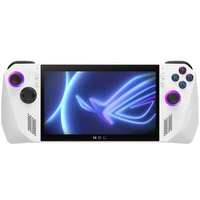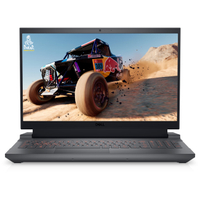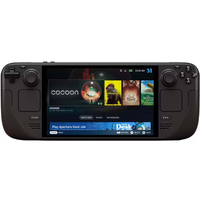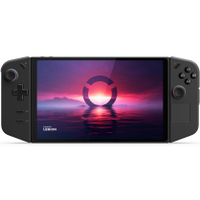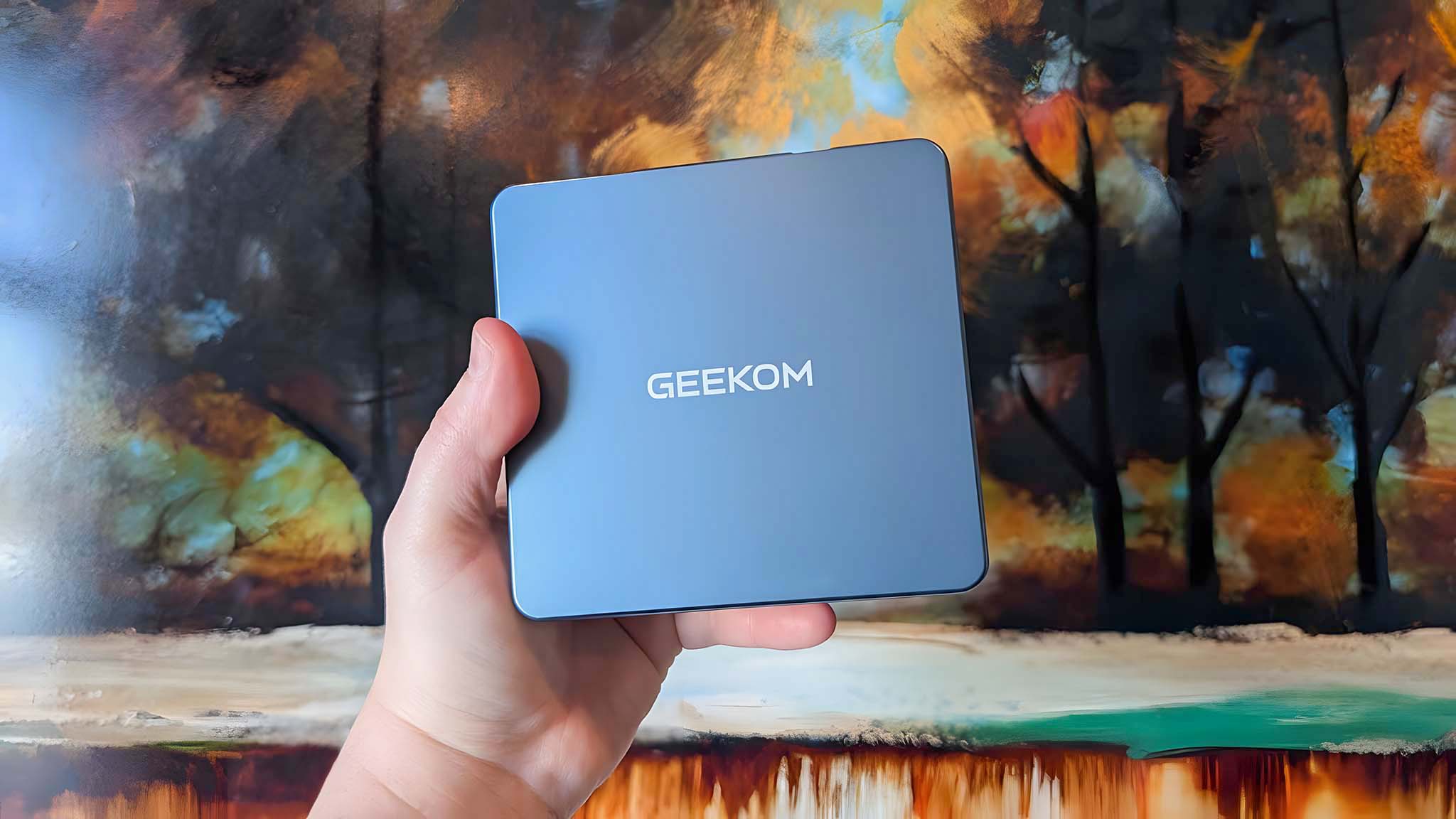Laptop vs. handheld: Which portable device should you choose for PC gaming?
Can't decide between a slick new laptop and a versatile handheld? We can help you get the right hardware for PC gaming.
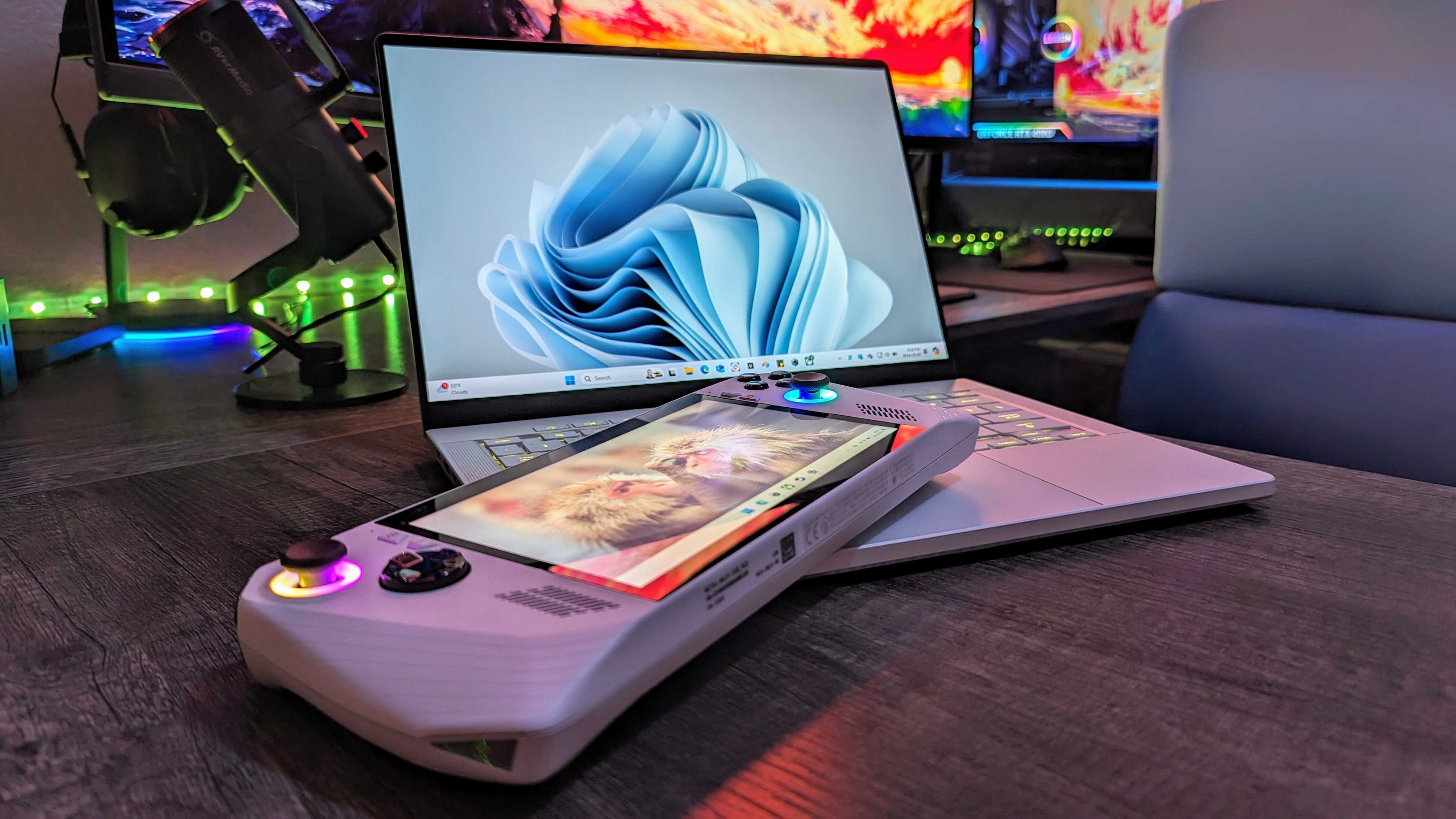
PC gaming handhelds have exploded in popularity, and they now offer a viable alternative to gaming laptops for anyone who wants even more portability and value. The gaming handheld market has grown considerably even in the past year, and while there aren't as many options as gaming laptops, most people will be able to find a handheld that is perfect for their specific needs.
We've tested and reviewed a bunch of the best gaming handhelds here at Windows Central, and most of us are avid gamers who use these devices regularly. This gives us a clear idea of why one might consider a handheld instead of a gaming laptop next time you're shopping for a new device.
In this guide, I'll break down the price and value, performance and battery life, portability, and compatibility to help you find the perfect hardware for your PC gaming lifestyle.
Gaming laptop vs. handheld: Value and pricing
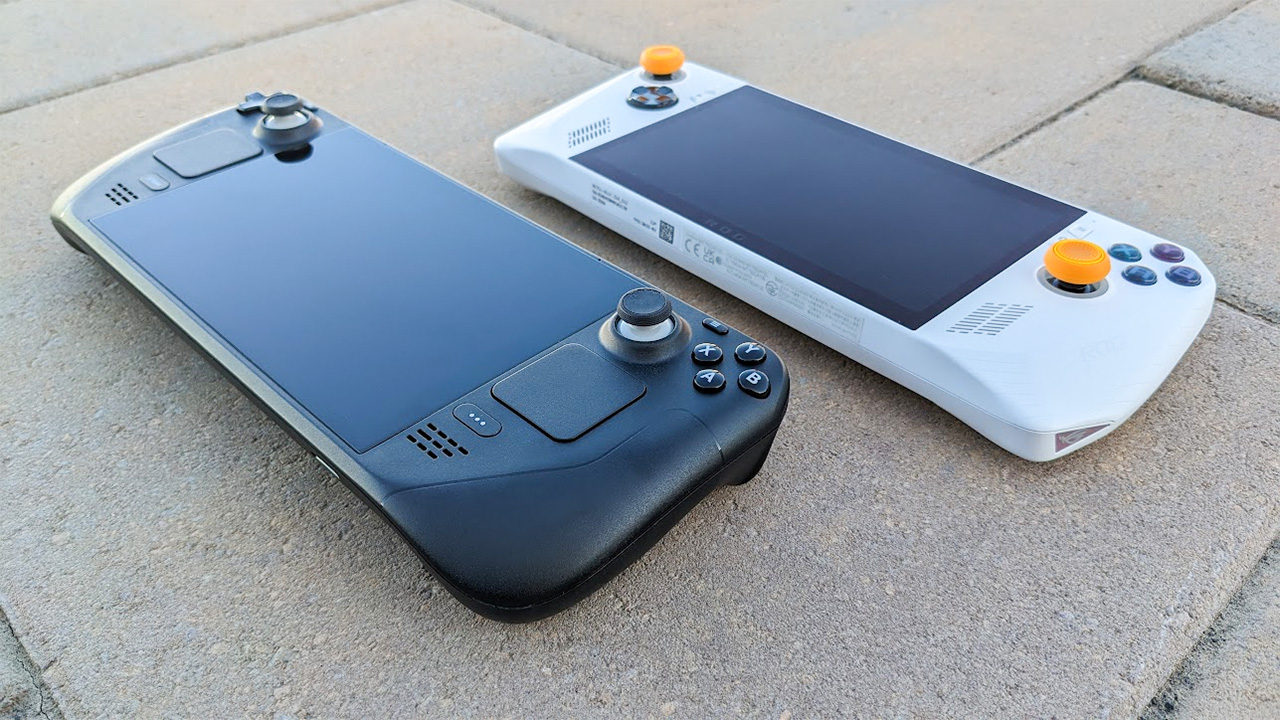
A quick look at our favorite gaming handhelds shows that prices generally come in between $300 and $700. Gaming handhelds differ in features and abilities, so it only makes sense that there's such a wide margin.
For example, the Steam Deck costs about $399 for an LCD display and 256GB of SSD storage, jumping to $549 for an OLED display and 512GB of SSD storage. Moving up to a 1TB SSD and OLED screen, it costs about $649.
There's also the ASUS ROG Ally with FHD IPS display, AMD Ryzen Z1 Extreme CPU, and 512GB SSD for about $700. You don't get an OLED display, but the boosted CPU can deliver better performance and, as we'll see, wider game compatibility out of the box compared to the Steam Deck.
The Logitech G Cloud — designed for game streaming with NVIDIA GeForce Now and Xbox Cloud Gaming — costs about $300, but it relies on a cloud connection rather than playing games locally. It's a lightweight, affordable pick, yet it's not technically a fully-featured gaming handheld.
ASUS ROG Ally | $700 at Best Buy
The ASUS ROG Ally is our top pick when it comes to the best gaming handhelds available today. It can run just about anything right out of the box, and its 1080p display at 120Hz is crisp and smooth.
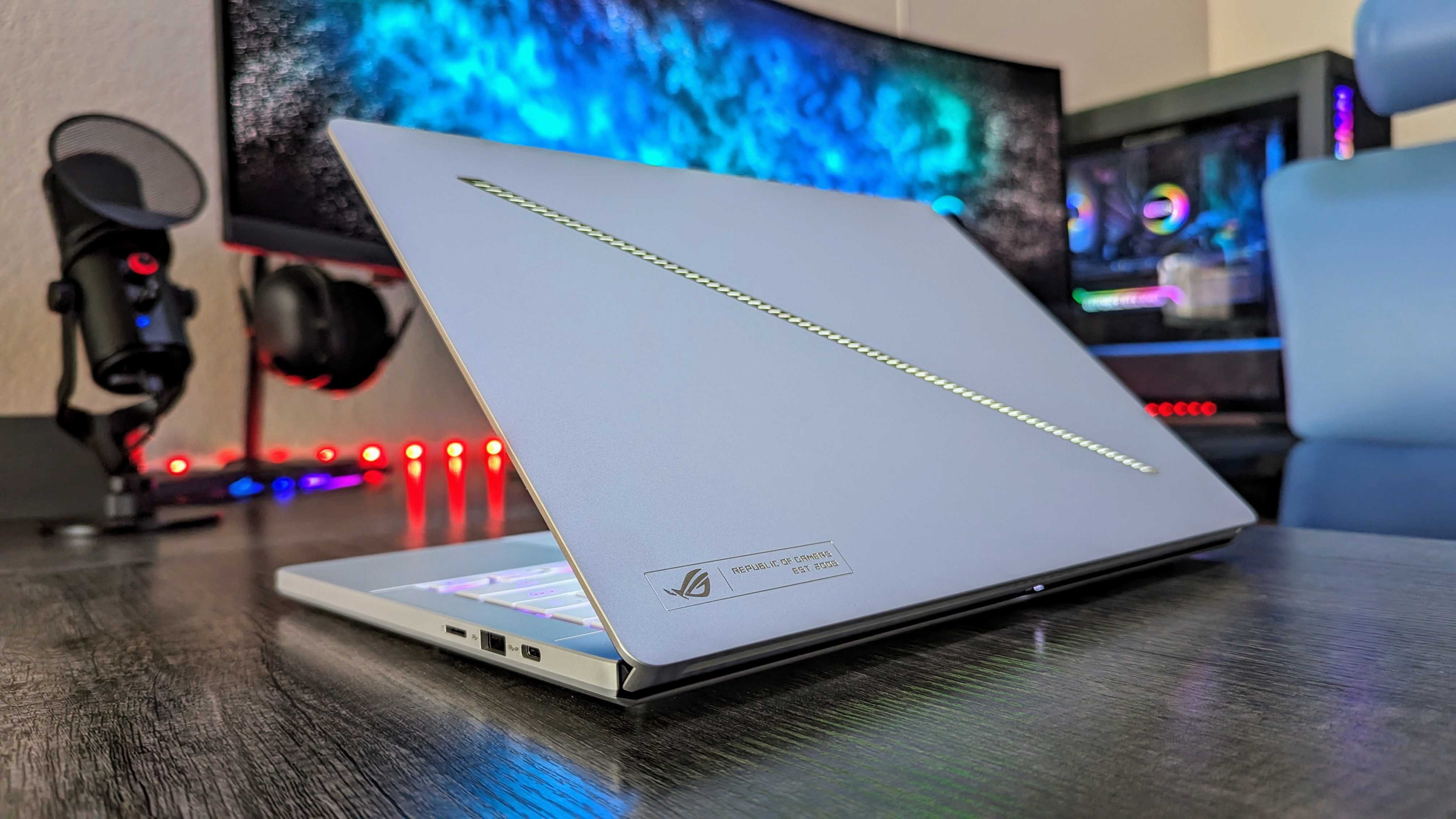
Turning our attention to gaming laptops, they too can sometimes be had for around $700 or less. Dell's G15 Gaming, for example, costs about $700 and includes a 13th Gen Intel Core i5-13450HX processor (CPU), NVIDIA RTX 3050 Laptop GPU, 8GB of RAM, 512GB M.2 PCIe SSD, and 15.6-inch FHD display at 120Hz.
Acer's Nitro 5, at the time of writing discounted to $670 at Best Buy, is even more affordable. It has a 12th Gen Intel Core i5-12450H CPU, NVIDIA RTX 3050 Ti Laptop GPU, 16GB of RAM, 512GB M.2 PCIe SSD, and a 15.6-inch FHD display with 144Hz refresh rate.
The absolute best gaming laptops can easily climb beyond $3,000 when fully configured, though these are generally reserved for enthusiasts. Most gamers are going to be able to get a killer gaming laptop for somewhere between $1,000 and $1,500, especially if they're shopping deals.
Dell G15 Gaming Laptop | was $900 now $700 at Dell
Dell's G15 Gaming Laptop is regularly discounted to about $700 for a model with Core i5-13450HX CPU, NVIDIA RTX 3050 Laptop GPU, and FHD display at 120Hz.
The fact that you can get a complete laptop that can be used for plenty of other purposes beyond gaming must be factored in here, which leads me to lean more toward the laptop as offering a better overall value.
Those who want to experience higher resolutions and better graphics should find that the extra money spent on a gaming laptop is well worth it. However, gaming handhelds are still a great value for what you're getting, especially if you value portability and ease of use.
Gaming laptop vs. handheld: Design and portability
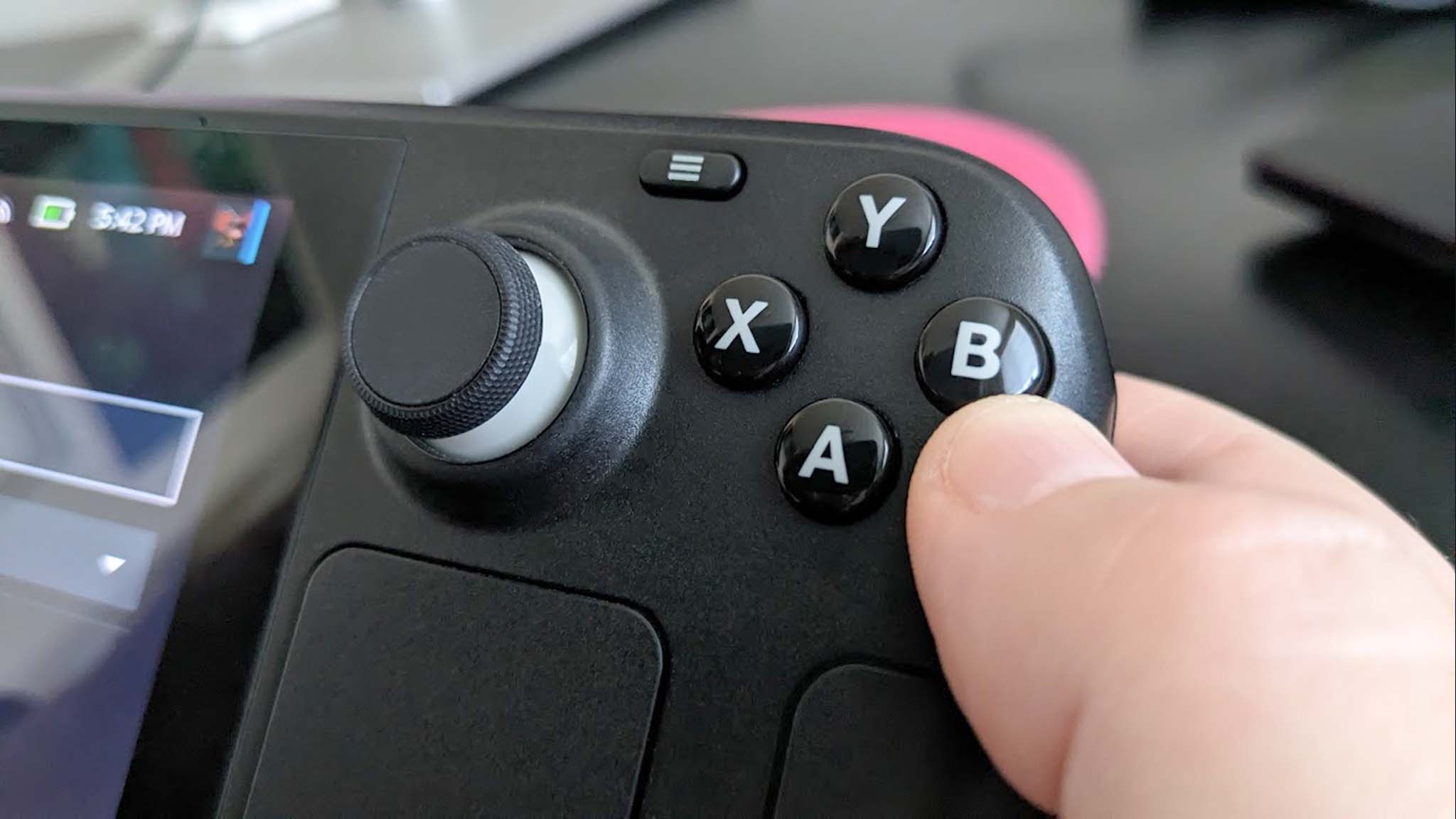
Both gaming laptops and gaming handhelds can indeed serve up your favorite titles just about anywhere you go. However, handhelds do it in a much more refined manner.
Handhelds are designed from the start to offer the most portability and comfort possible. You don't have to worry about having enough space in front of you to operate — like on a cramped plane or bus ride — and their smaller build makes them easier to tuck into a backpack or even under your arm.
Gaming laptops have been slimming down a lot in recent years, but they're still much larger and heavier than gaming handhelds. You do get the convenience of having your PC with you wherever you go, but that won't matter for a lot of people who simply want a convenient approach to gaming.
As mentioned in our Steam Deck review, the "attention to ergonomics makes it an incredibly comfortable device to hold, even during extended gaming sessions. The rounded edges of the left and right grips gently fold into your palm, and the placement of the triggers and rear buttons feel natural."
Speaking from experience, I'd much rather hold my Steam Deck in front of me than have a gaming laptop on my lap, especially for extended gaming sessions. It has everything you need built right in, and it's lightweight enough that, beyond a few arm shakes once in a while to get the blood flowing, I don't really notice that it's in my hands.
When it comes to portability and comfort, gaming handhelds hold an easy advantage over gaming laptops. If you frequently travel or just don't want to be confined to a desk with a gaming laptop (they're not actually that great for laps due to heat), you should lean toward a handheld.
Gaming laptop vs. handheld: Performance and battery life
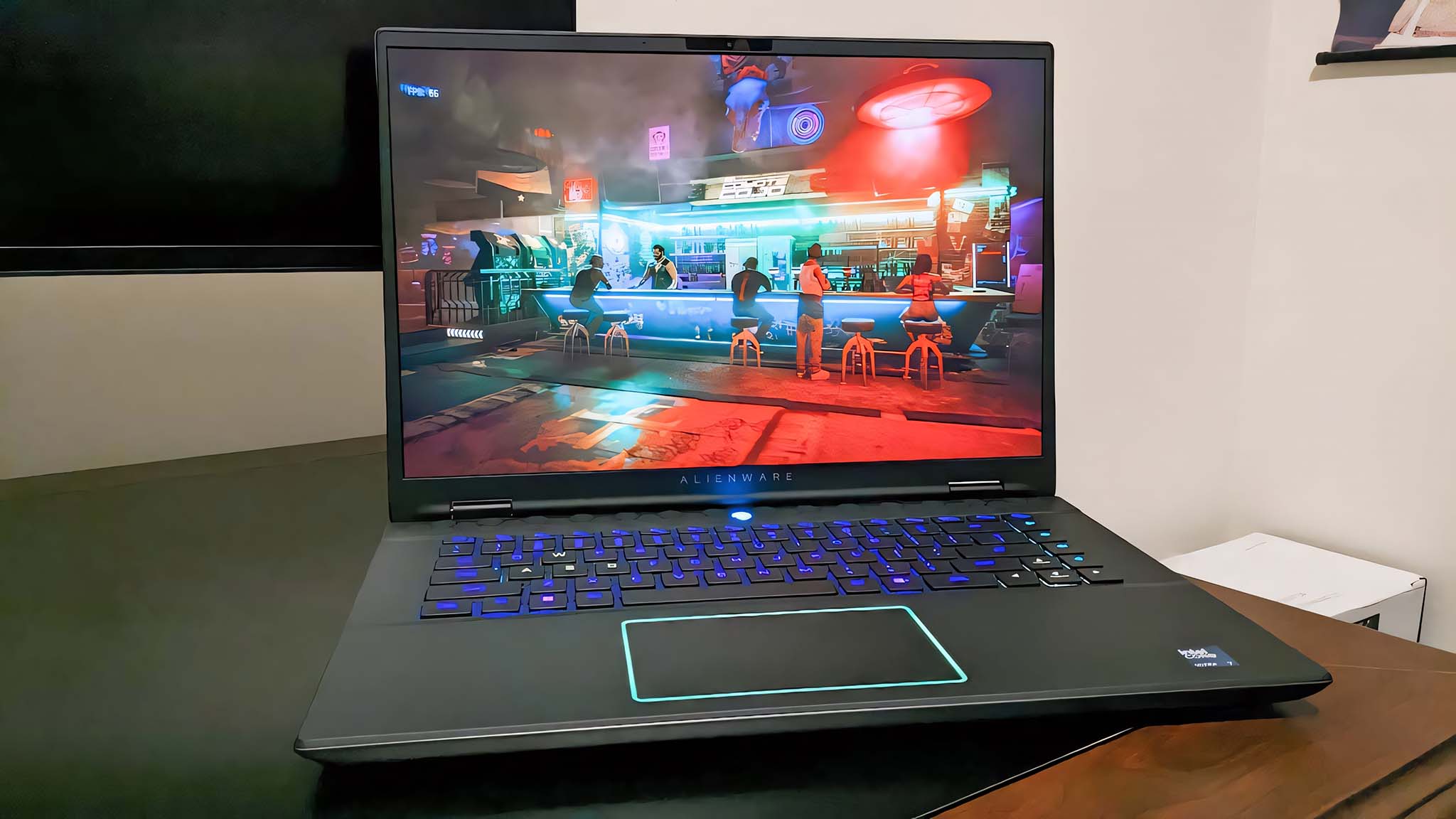
When it comes to raw gaming performance, a gaming laptop wins every time. Even budget gaming laptops have a strong CPU, discrete GPU, and plenty of RAM, which all contribute to a smoother gaming experience.
You should be getting at least a 1080p display (which isn't true in all gaming handhelds) with a refresh rate beyond 100Hz, with those numbers climbing drastically as the price goes up. Modern gaming laptops just keep getting better, and many high-end options offer performance that can keep up with desktop PCs.
Because gaming handhelds of today usually rely on AMD Ryzen APUs with graphics integrated into the chip, you can't expect the same performance as compared to a gaming laptop with a separate CPU and GPU. You can still expect a smooth experience in a lot of games, but a handheld has stricter limitations.
If you want to enjoy modern games looking their best, a gaming laptop is the recommended choice. However, if you're OK with turning down the graphics and the inability to play some very demanding titles, a gaming handheld will still do a great job.
As for battery life, a gaming handheld will generally offer a much longer runtime than a gaming laptop. Gaming laptops have a lot more onboard hardware to keep going, and battery life is usually quite limited. If you're worried about gaming for longer, away from an AC outlet, stick with a handheld.
Gaming laptop vs. handheld: Gaming compatibility
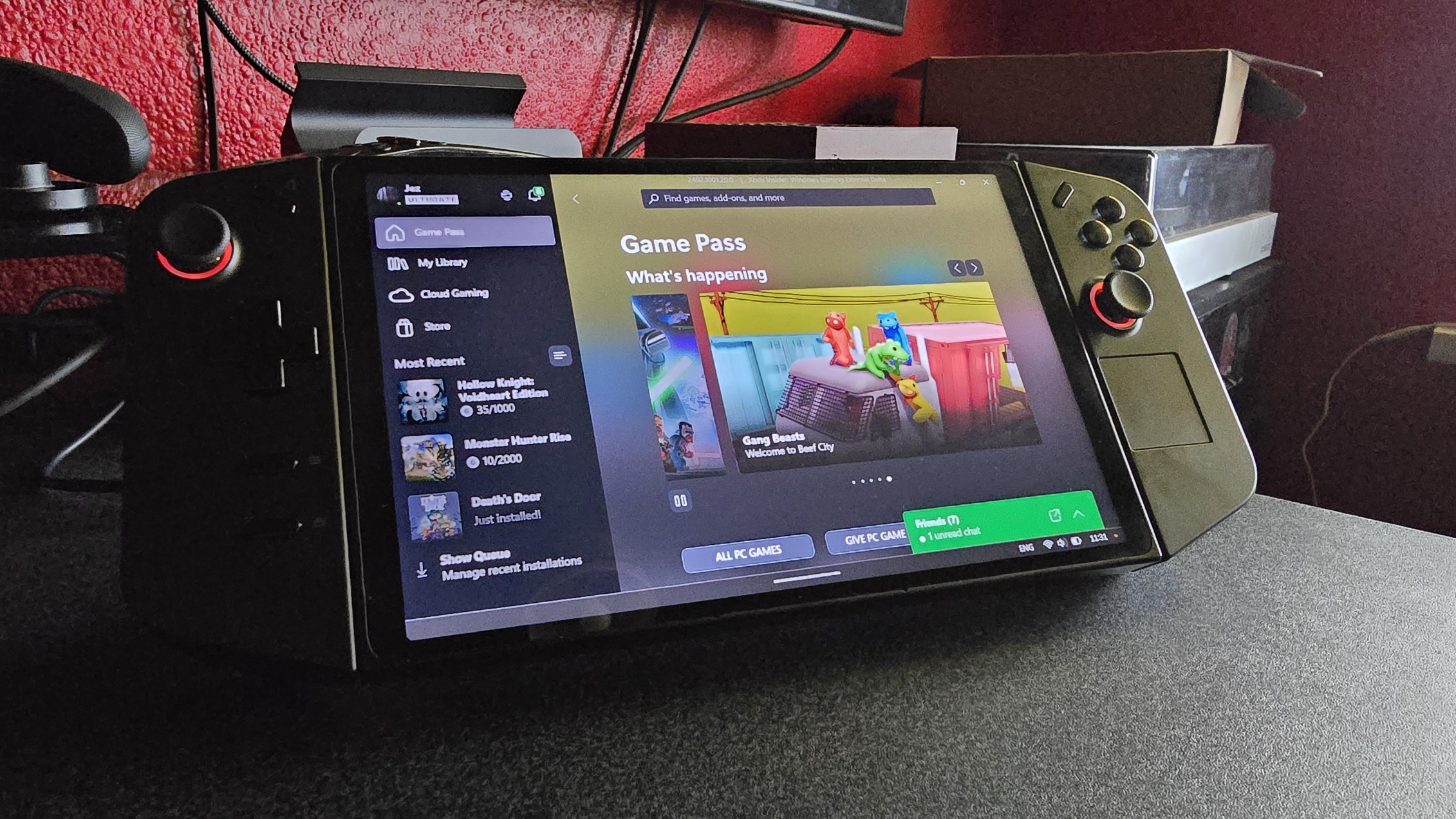
Compatibility with games is another issue that is more frequently found in some gaming handhelds. Windows remains the number one platform for PC gaming. Just about all gaming laptops run Windows, but the same can't be said for all handhelds.
The Steam Deck, for example, runs a Linux-based SteamOS platform. It's smooth and streamlined for the hardware, but it can't natively run all games and apps. There are tools built in — like Proton — that can translate Windows games to Linux, but you'll still be missing out on lots of games from other apps.
For example, I'm a Game Pass subscriber with a Steam Deck. Because the Xbox app will only run on Windows, I'm barred from accessing my library of Game Pass games if I don't want to stream them to the handheld. There are workarounds for a lot of this stuff — you can even install Windows on the Steam Deck — but not everyone is comfortable with that level of tinkering.
Handheld devices like Lenovo's Legion Go and the ASUS ROG Ally do run Windows natively, just like a gaming laptop. That removes a lot of the headaches for those who use platforms beyond Steam, but it dredges up other Windows-specific issues with which the Steam Deck doesn't have to contend.
In our ASUS ROG Ally review, Windows Central Editor Rebecca Spear remarked that "Windows 11 allows me to install anything that a gaming laptop can, easily surf the internet, and gives me more freedom to adjust settings. It also allows me to access any gaming service I want, including Steam, Battle.net, Epic Games, and more."
If you own or subscribe to a lot of games through apps that don't run natively on Linux, you do have Windows-based handheld options. But for the best compatibility — both in OS and hardware ability — you should stick with a gaming laptop.
Gaming laptop vs. handheld: Which should you choose?
In an ideal world, all gamers would have a PC and a handheld standing by to accommodate their cravings depending on each situation. However, most people are going to be choosing one or the other to have as their primary gaming device.
If you value portability and comfort, a gaming handheld is an easy recommendation. I love my Steam Deck's ability to travel with me anywhere, and I appreciate that I can take it out and start using it at a moment's notice. It doesn't matter where I am; it fits the situation. The same goes for other handhelds.
On the other hand, those who want to push frame rates and enjoy more games at higher resolutions should stick with a gaming laptop. While I love my handheld for its versatility, I still enjoy gaming on a huge, high-res display with maxed graphics, and that's only possible with a bonafide gaming PC.
Get the Windows Central Newsletter
All the latest news, reviews, and guides for Windows and Xbox diehards.

Cale Hunt brings to Windows Central more than eight years of experience writing about laptops, PCs, accessories, games, and beyond. If it runs Windows or in some way complements the hardware, there’s a good chance he knows about it, has written about it, or is already busy testing it.
